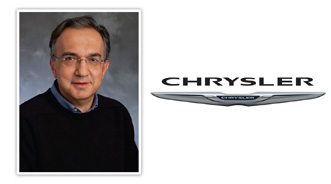Chrysler Group Disputes NHTSA Recall Request with White Paper

By subscribing, you agree to receive communications from Auto Remarketing and our partners in accordance with our Privacy Policy. We may share your information with select partners and sponsors who may contact you about their products and services. You may unsubscribe at any time.
AUBURN HILLS, Mich. –
On Tuesday, Chrysler Group responded to a NHTSA recall letter that involved a total of approximately 2.7 million vehicles.
The recall request letter deals with the Jeep Grand Cherokee in model years 1993 to 2004 and the Jeep Liberty in model years 2002 to 2007.
The recall request calls into question certain models in regards to the Federal Motor Vehicle Safety Standards, including FMVSS 301, pertaining to fuel-system integrity.
According to the NHTSA letter, in June of last year, the Office of Defects Investigation of the NHTSA "opened engineering analysis to investigate an alleged safety-related defect concerning fuel-tank system integrity in rear-impacts or crashes" in the aforementioned models.
The investigation revealed “numerous fire-related deaths and injuries, fires that did not result in deaths and fuel leaks in rear impacts,” the letter reads.
The NHTSA contends that the vehicles in question pose a risk to motor vehicle safety in rear-impact collisions due to possible malfunctions in the fuel systems.
Subscribe to Auto Remarketing to stay informed and stay ahead.
By subscribing, you agree to receive communications from Auto Remarketing and our partners in accordance with our Privacy Policy. We may share your information with select partners and sponsors who may contact you about their products and services. You may unsubscribe at any time.
Chrysler’s response:
“Our analysis shows the incidents, which are the focus of this request, occur less than once for every million years of vehicle operation. This rate is similar to comparable vehicles produced and sold during the time in question,” the company said.
In Chrysler’s white paper on the subject, the company states: “All of these vehicles exceeded the requirements of NHTSA’s FMVSS 301, the standard by which fuel system design is evaluated in the United States.”
Chrysler goes on to say: “For the vast majority of the incidents cited by NHTSA, the crash force was far in excess of the rear crash fuel leak requirements in place at that time, and more than the requirements in place today.”
NHTSA also cites fuel tank heights and position as a possible design defect. Chrysler contends that the “the fuel tanks height and location in our vehicles, relative to bumper position, is comparable to most of the peer SUVs.”
Chrysler Group has actually been working and sharing data with the agency regarding this issue since September 2010 and does not intend to recall the vehicles cited in the investigation, claiming they are safe and not defective.
The company contends NHTSA’s “initial conclusions are based on an incomplete analysis of the underlying data.”
"The safety of drivers and passengers has long been the first priority for Chrysler brands and that commitment remains steadfast," said Sergio Marchionne, chairman and chief executive officer of Chrysler Group. "The company stands behind the quality of its vehicles. All of us remain committed to continue working with NHTSA to provide information confirming the safety of these vehicles."
In light of this unusual development and Chrysler’s challenge of NHTSA, Edmunds.com senior analyst Michelle Krebs offered the following take on this rare development:
"Chrysler must feel like it has a compelling reason to take such a bold stand," Krebs said. "Since Toyota was publicly humiliated for dragging its feet on recalls just a few years ago, automakers have been quick to recall vehicles at NHTSA's request.
"Unfortunately, consumers with problematic Jeeps are in limbo. They will have to wait for the process to play out,” she added.
But consumers can check out the claims, as well. See the initial NHTSA recall request here.
Interested parties can also view the entire white paper outlining Chrysler’s response to the NHTSA here.
Sarah Rubenoff can be reached at [email protected]. Continue the conversation with Auto Remarketing on both LinkedIn and Twitter.


